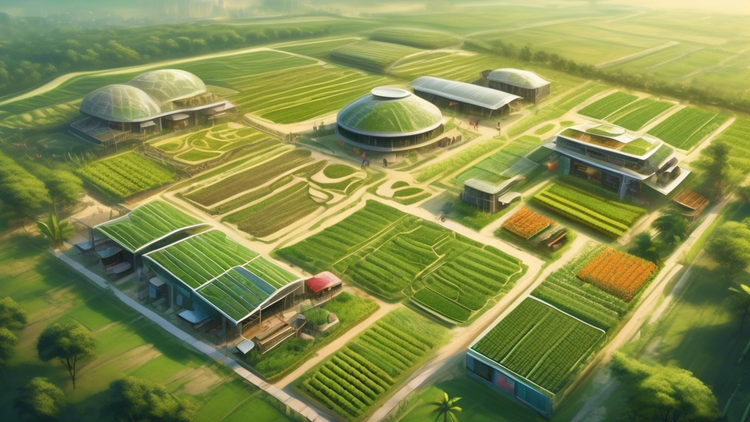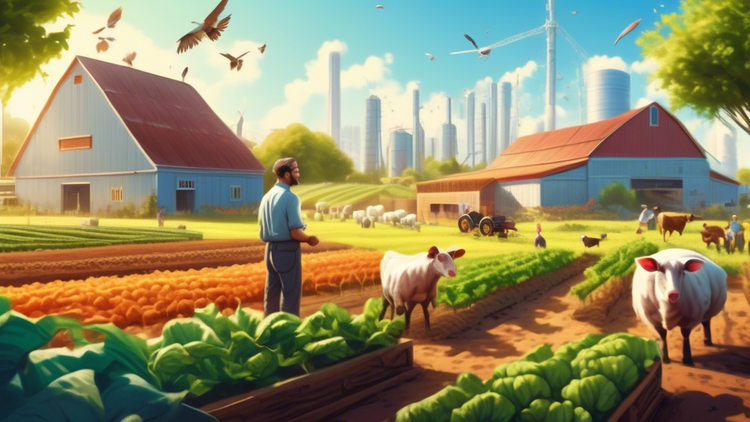A Sustainable Future: The Role of Agroecology and Organic Farming in Tropical Regions

The Importance of Sustainable Farming in Tropical Regions
In recent decades, the environmental, social, and economic importance of sustainable agricultural practices has increasingly come to the forefront. Tropical regions, with their vast biodiversity and significant contribution to global agriculture, play a critical role in this area. Agroecology and organic farming represent viable pathways toward achieving sustainability in these sensitive ecological zones.
What is Agroecology?
Agroecology is a holistic approach to agriculture that applies ecological concepts and principles to optimize interactions between plants, animals, humans, and the environment. It focuses on the design and management of sustainable agroecosystems. The main aim of agroecology is to create systems that are resource-efficient and resilient, supporting food security and local livelihoods.
Principles of Agroecology
- Diversity: Incorporating a variety of species to promote a balanced ecosystem.
- Synergy: Fostering beneficial interactions between different components of the agroecosystem.
- Efficiency: Maximizing the use of natural resources in a sustainable manner.
- Resilience: Enhancing the capacity of agriculture to recover from environmental stresses and climate change.
- Recycling: Minimizing waste by recycling resources within the farm system.
Organic Farming in Tropical Regions
Organic farming is an approach that refrains from using synthetic pesticides and fertilizers, genetically modified organisms, and growth regulators. In tropical regions, where pests and diseases are abundant due to the warm climate, organic farming challenges conventional agricultural systems by promoting techniques that preserve soil health and biodiversity.
Benefits of Organic Farming
- Environmental Protection: Reduces pollution and conserves water and soil quality.
- Health Benefits: Minimizes exposure to chemicals for both consumers and farmworkers.
- Biodiversity: Supports a wide range of species and natural processes.
- Economic Resilience: Enhances income stability for farmers through premium market prices and reduced input costs.
Case Studies: Success Stories from the Tropics
In regions such as Costa Rica and Indonesia, agroecology and organic farming have led to significant environmental and economic benefits.
Costa Rica's Coffee Revolution
In the lush landscapes of Costa Rica, coffee producers have turned to organic farming to enhance biodiversity and ecosystem resilience. This shift has not only improved soil fertility and pest control but also increased the quality of coffee, fetching higher prices in international markets.
Indonesia's Rice Fields
Indonesian farmers employing agroecological practices in rice cultivation have seen increased crop yields and reduced chemical inputs. This approach has also led to better water management and improved outcomes for local wildlife.
Challenges to Implementation
Despite their benefits, agroecology and organic farming face several obstacles in tropical regions:
- Knowledge and Training: There is a need for more extensive education and training to spread sophisticated, sustainable farming techniques.
- Economic Barriers: Initial investment costs can be high, and accessing organic markets may be challenging.
- Policy Support: Governments often prioritize conventional farming techniques, so there is a dire need for policies that support sustainable practices.
Conclusion
The integration of agroecology and organic farming techniques offers a promising path to sustainable agriculture in tropical regions. By utilizing these methods, farmers can enhance food security, support biodiversity, improve economic resilience, and mitigate the impacts of climate change.
Here's a thought to consider: embracing these practices not only nurtures the land but also cultivates a healthier future for the next generations.
Looking for updates? Sign up to our newsletter for weekly snippets.
#PurelyPlanted #WholesomeHarvest #PlanetPlatter





